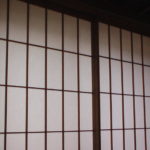
Simplicy as a way to manage the complex. Complexity and nuance as a way to manage simplicity. Clarity of thought and design. Silence as communication. A single purpose or function so clear that is needs no embelishment. Shibumi.
There was a time where there was time to think and to think clearly, where problems could be solved directly without a multitude of nuance, politics, global ramifications. There was a time where time to think led to great thoughts about the betterment of mankind, society, relationships, education, our place in the universe.
Those who thought these thoughts did not walk throughout their day, compeled to look down at an electronic device in their hand every 5 minutes, anxious to know if a poorly crafted sentance or two about something relatively meaningless had arrived from someone of little consequence. There was not a glutonous desire to be kept up to the moment on such pressing matters as who likes Samsumg Mobile, who’s child got the latest Sesame Street DVD, who found a deformed cucumber in their garden, who still did not believe the President was born in the United States, who was recovering from an evening of binge drinking, who liked popcorn, and who has the best Ozzy tattoos.
There was face to face conversations and exchanges of ideas. There were debates about religion, politics, agriculture, industry, finance, social development, feeding the poor, trends in Europe and Asia. There was polarity and concensus. A wide range of human emotions were forced to pour out of individuals in front of other individuals who felt their weight, saw the faces and physical reactions of others as a result of word and action. When face to face interaction was impossible because of distance, written discourse filled the gap. But not misspelled, poorly crafted soundbites void of emotion or intelligence. Intelligable, emotion filled words that took the writer time to craft so as to clearly transmit more than a message, but a theme and a feeling so clearly written that it needed no further embellishment.
When did we lose the ability to clearly and concisely transmit a message that demanded a single function be performed in its simplist and most effective form in order to solve a problem? When did bullet points and variation according to audience, and purposeful lack of clarity in order to create no expectation and demand nothing become the acceptable form of human exchange? When did we begin to lose Shibumi?
Lets be clear, multifunction has its place in a world that has allowed pausing to reflect and think for a moment to disappear. But there was and can still be a time where a calendar is a calendar, a phone is a phone, a meeting communicates and resolves, and human interaction prefers to occur in person, face to face. Shibumi in one’s life can exist.
So then Shihan – please get clear on how these prior paragraphs have anything to do with my dojo or my self defense training.
I shall. Let me clearly state the purpose of a martial art. A true martial art gives the practitioner strategies, tactics and techniques to enable him or her to stop another human being from bringing physical harm to themselves or loved ones.
This statement of purpose utilizes the concept of shibumi in all of its demensions. And when you are part of a “jutsu” focused dojo, this is the purpose you embrace and the goal to which you strive. It is without embelishment. You simply need a competent instructor, mats for your safety, and an open and eager mind. You must embrace the shibumi of the concept. Everything you do in that dojo must be focused on strategies, tactics, and techniques that will make you able to defend yourself and your loved ones from harm at the hand of another human. More than that, and you have mudied the waters. You have clouded clarity. There will be distractions and diversion. Without the human interaction of self defense training, and the immediate feedback of success or failure of the execution of your techniques, you achieve nothing.
Do not look for the promotion or the belt. They are distractions. There is no special or more advanced technique than the one that most effectively avoids, escapes from, stops, or defeats a violent attack. Better ways to “win” in class “competition” simply develops a lack of clarity about what it takes to stop a violent attack.
Should you strive for Shibumi in all parts of your life? Yes – you should. Life takes on a new beauty when the power of simplicity is recognized. There is still a very important place for silence, reflection, clarity of purpose, simple solutions, absense of distraction, in person human interaction and discourse. That beauty exists in a true “jutsu” dojo. The simplicity of purpose without embellishment is beautiful. The ability to stop aggression and increase peace between humans through knowledge is beautiful. So dont cloud that beauty with aspiration, desire for recognition or promotion, with being better than your training partners, with the constant search for the “secret” or “advanced” technique. These are all rain clouds on an otherwise beautiful clear summer day.
Clear your minds of notions and emotions. Sit in silence and focus on the extremely clear purpose of self defense. Let nothing distract you. Shibumi sits silently waiting for each to realize its presence and its power.

Recent Comments